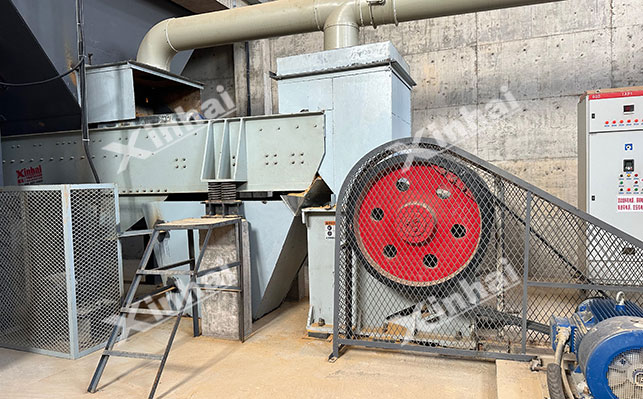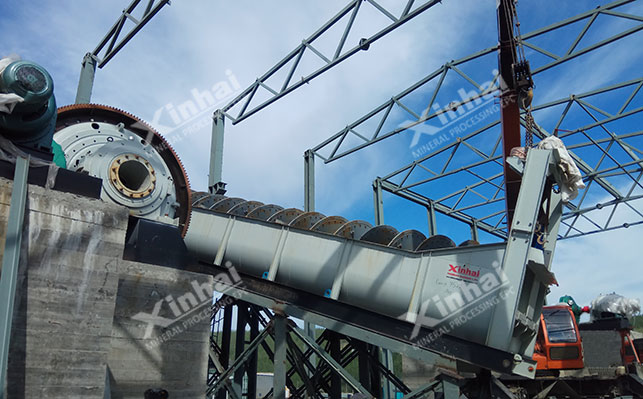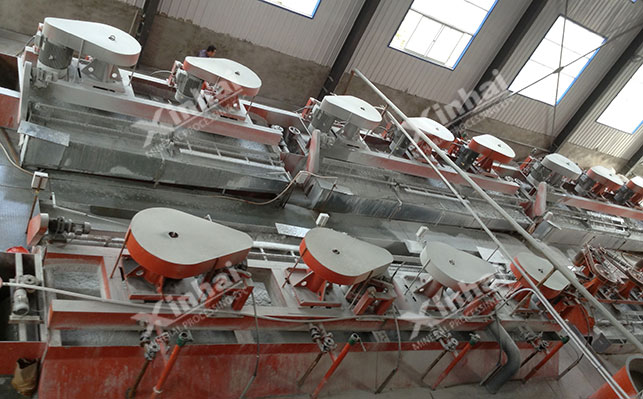
15311826613
Click to add WeChatIndependent silver ore refers to silver that is enriched in large quantities in the form of independent minerals, and is basically not associated with other metals. For this type of silver ore beneficiation, flotation is often used to complete the beneficiation. By utilizing the difference in the physical and chemical properties of the surface of silver minerals and gangue minerals, flotation agents are added to make the bubbles attached to the silver minerals float up to achieve separation from the gangue minerals. So what is the independent silver ore flotation process?
The flotation process of independent silver ore basically follows the steps of crushing, grinding, flotation, and concentrate dehydration.

After mining, the independent silver ore first enters the crushing stage. The large piece of raw ore starts the coarse crushing process with the help of a jaw crusher. The moving jaw periodically approaches and moves away from the static jaw to squeeze and split the ore, reducing the particle size of the raw ore from a larger size (such as about 1000mm) to 150-200mm, reducing the load for subsequent processing. Then, the cone crusher takes over to further refine the particle size. Its moving cone swings under the drive of the eccentric sleeve. The ore is continuously squeezed and bent between the fixed cone and the moving cone, and is crushed to 25-40mm, meeting the grinding feed requirements.

The ball mill has become the main force of grinding. The steel balls loaded in its horizontal rotating cylinder fall freely after the centrifugal force and friction force rise when the cylinder rotates, violently impacting and grinding the silver ore in the cylinder. This process grinds the crushed ore to -0.074mm, accounting for 60%-80%, allowing the silver minerals and gangue minerals to be fully dissociated. When processing some independent silver ores with high requirements for particle size uniformity and silver minerals that are easy to be over-crushed, the rod mill can play a role. Relying on the line contact between the steel rods, large particles are crushed first, avoiding over-crushing, better protecting the crystal structure of the silver minerals, and improving the dissociation quality.

The ore pulp after grinding flows into the XJC-4 or SF-4 flotation machine. Taking the XJC-4 type as an example, the impeller rotates at high speed to create negative pressure in the flotation tank, sucking in air and dispersing it into tiny bubbles, while stirring to fully mix the pulp and bubbles. According to the characteristics of silver minerals, collectors such as ammonium butyl are added, and their solid-affinity base chemically adsorbs metal ions on the surface of silver minerals, making the mineral surface hydrophobic, and the attached bubbles float to the surface of the pulp to form a foam layer, which is scraped out to become silver rough concentrate.
The silver rough concentrate produced by flotation contains a large amount of water, which is first dehydrated by a concentrator. In the concentration tank, solid particles settle under gravity, and the rake slowly rotates to scrape the sediment to the central discharge port, increasing the pulp concentration from 10%-30% to 50%-60%. Subsequently, the filter press comes on stage, pressurizing the concentrated pulp, squeezing the liquid out of the filter cloth, and reducing the water content of the silver concentrate to 10%-15%, meeting the requirements of transportation and smelting.
The above is an introduction to the independent silver ore flotation process. The specific silver ore beneficiation process in the actual beneficiation plant depends on the properties of the silver ore. Generally, a beneficiation test will be carried out first, and a suitable silver ore flotation process will be designed through test analysis. At the same time, the type and model of equipment required for the entire beneficiation process can also be given.